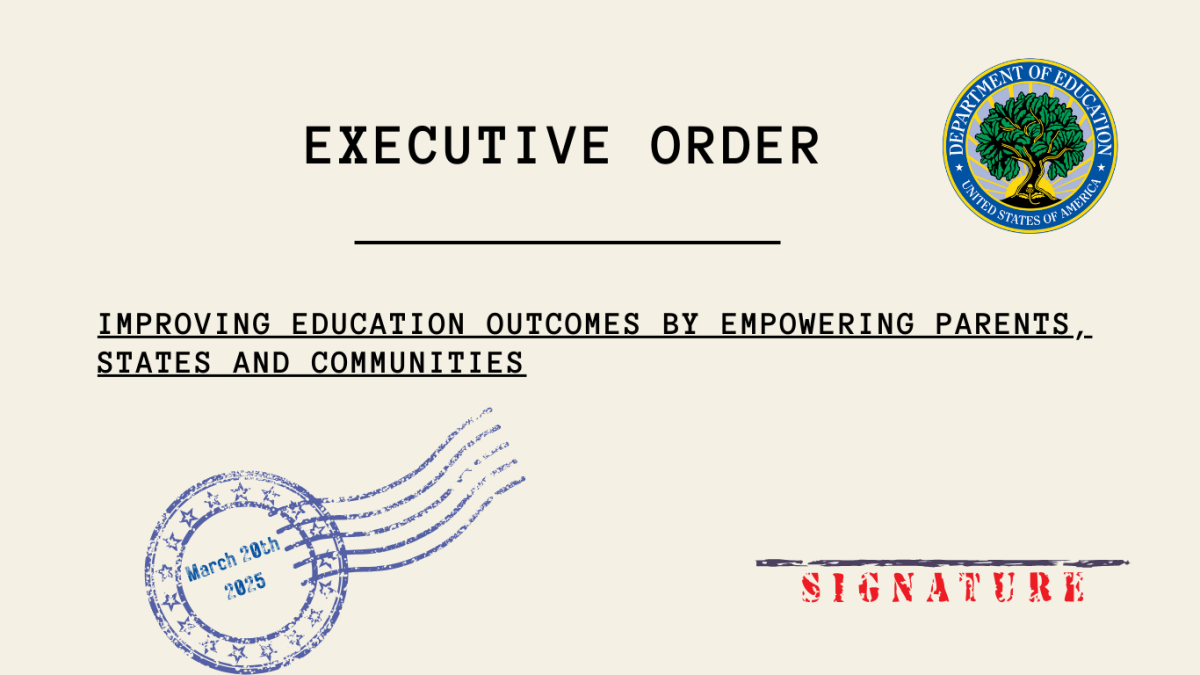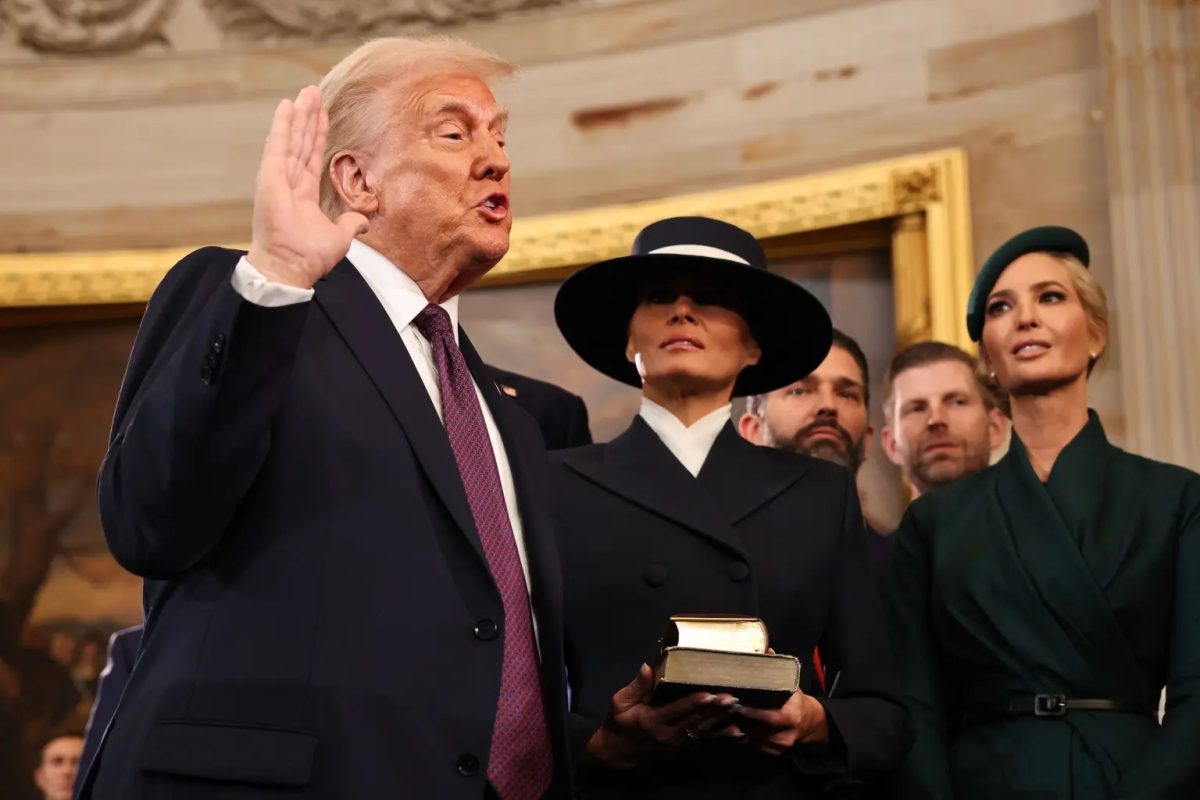President Trump’s executive order to begin the process of dissolving the Department of Education raises concerns amongst education professionals.
“We are not going to be able to keep certain programs going on a state level without funding coming our way, and that is going to negatively affect many students, unfortunately,” career research and decision-making teacher Jacquelyn Pileckas said.
The order issued March 20th, affirmed the Department of Education’s function should be returned to the states once “the experiment of controlling American education through Federal programs and dollars — and the unaccountable bureaucracy those programs and dollars support — has plainly failed our children, our teachers, and our families.”
As of now states handle public schooling including some funding and curriculum, however, other programs such as Diversity, Equity, and Inclusion (DEI) and English for Speakers of Other Languages (ESOL) are federally funded.
“I would be very concerned for the kids that are part of ESOL, those are kids that don’t have the same easiness with the English language, and they often struggle because of it. Without ESOL these kids might have to go through school with no accommodations or support which would probably leave them in an extremely unfair situation,” ESOL coordinator Helano Carvalho said.
Even though the executive order does not take effect without congressional approval, Exceptional Student Education (ESE) coordinator Kylie Root projects that this order, if approved, could have indirect consequences such as overcrowding of schools.
“If any schools had to cut ESOL and ESE programs students would end up going to another school who can provide those services which can lead to overcrowding and students being underserved,” Root said.
Some teachers including Social Studies teacher Surojaine Walton, also fear the effects of this dissolution on equity within schools
“I think there might be an equity issue, for instance they [Department of Education] are in charge of Title 1which makes sure that students that are in low-income schools are able to get free lunch; they are also in charge of Individual Education Pan (IEP) for student with learning disabilities. I am not sure that if we just reverted this responsibility to States those States would be willing to oversee all of that,” Walton said.
In his executive order President Trump suggested the Department of Education has cost taxpayers more than it should have and yet this year’s National Assessment of Educational Progress (NAEP) showed that 70 percent of eighth graders were below proficient in reading, and 72 percent were below proficient in math.
Dean of operations Joseph Winters is of the opinion that these low-test scores are warranted as learning is being still impacted by aspects such as the pandemic.
“We are still grappling with the learning deficits of the COVID year where everybody spent online, we can’t keep saying that forever, but it is true, if you were in fourth grade and you spent the whole day playing Xbox and did not learn how to do long division, you are going to be in a hard spot when you get up to pre-algebra,” Winters said.
When looking at funding it is crucial to account that some states have higher Gross Domestic Product’s (GDP) than others. This is another cause for concern as the lack of federal assistance might create a drastic divide between wealthy states’s and poorer states’ education.
“There are states that are very rich and more developed such as Connecticut while others have very high poverty rates, so in case of the end of the Department of Education there could be a huge difference in quality of education across the country,” Carvalho said.
In case of this order moving further in Congress public schools would suffer greatly as they are entirely government funded. However, as explained by Assistant Principal Christopher Rushing, Charter Schools across the country such as Four Corners Upper School are not typically federally funded therefore the impact would be reduced.
“There are some parts that are government funded but for the most part we are funded by Charter Schools USA as a company, teacher salaries come from them but other resources we get like ESOL comes from the government,” Rushing said.
With all concerns up in the air, Principal Joseph Childers shares he is not certain any changes will take place at this time. So, he will continue to wait for any action upon the executive order to make any changes at the school.
“It [executive order] was such a broad statement, and there is not meet of that statement; the loose interpretation is that federal grant funding won’t be cut, but again we have seen nothing beyond that,” Childers said.









